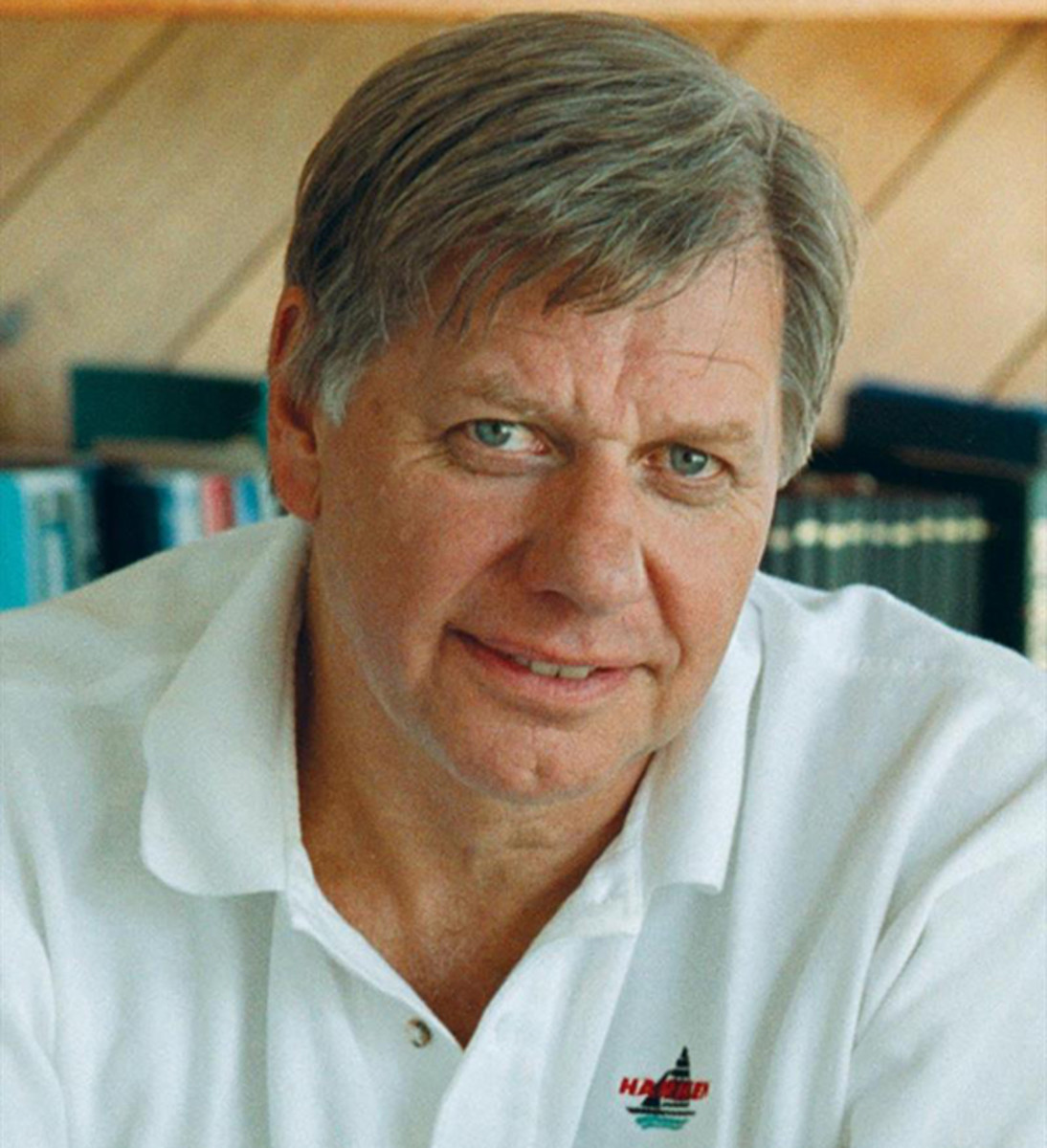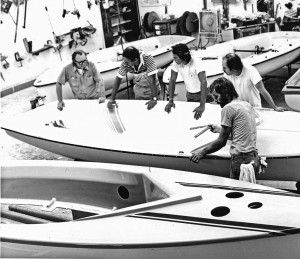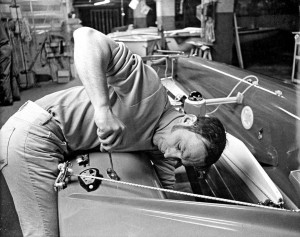• Co-founder of the blocks and rigging multinational dies in Pewaukee Wisconsin.
• He is survived by Ruth, his wife of 47 years, three daughters, four granddaughters and a grandson.
• Preliminary plans include a visitation and service Saturday morning, October 26 at Galilee Lutheran Church in Pewaukee, followed by a celebration at Harken HQ. For overseas friends, another celebration of Olaf’s life will be held at the Amsterdam METS show in November.
Olaf Harken died on Sunday in his sleep after being honoured on Saturday with a Lifetime Achievement Award from the Pewaukee Yacht Club. He and his older brother, Peter, created their globally successful Harken block and rope handling business having started out of a 60ft trailer in 1967. Initially they built dinghies under the Vanguard name, before the marine hardware side took over. Based at Pewaukee, Wisconsin, the brothers built a brand that became synonymous with good performance across a range of marine hardware. With subsidiaries in Australia, France, Italy, New Zealand, Poland, Sweden and the UK Harken gear can be found on boats from Optimists to superyachts; cruisers and racing boats alike.
The company has also diversified into the commercial marine, architectural, rope access and rescue industries.
The brothers were inducted into the National Sailing Hall of Fame in 2014, he explained the Harken business philosophy: “When trying new stuff our rule is to ask, ‘if it all goes bad, can we survive?’ Then we go to the bar and forget what we just said and do it anyway!” The brothers took a lot of chances over the years – and encourage employees to do the same.
Olaf was born of Dutch and Swedish parents in Indonesia at the beginning of World War II. In 1941 after the Japanese attacked Indonesia, their mother escaped with Olaf and Peter ending up in San Francisco in 1944, via Borneo, New Zealand and Australia. Their Dutch father Joe fought the Japanese before being captured and spent the rest of the war in a prison camp. The family reunited in America in 1946.




